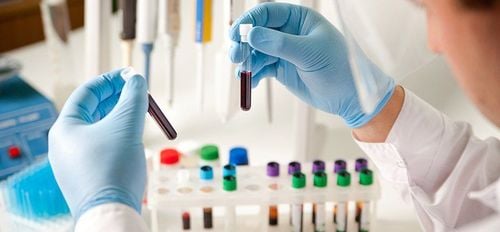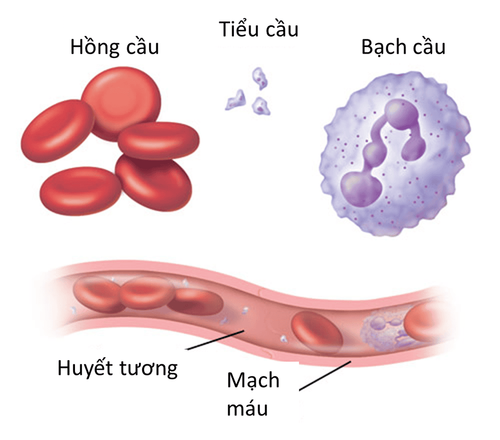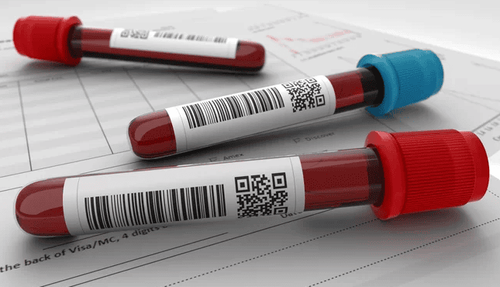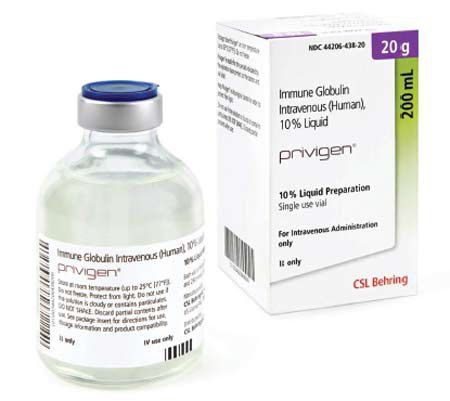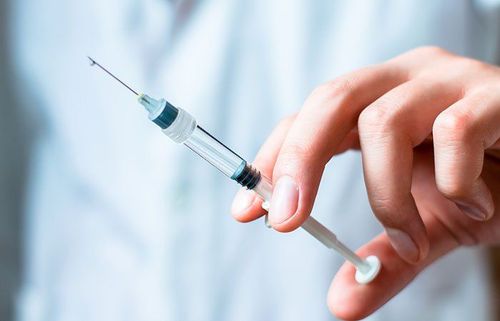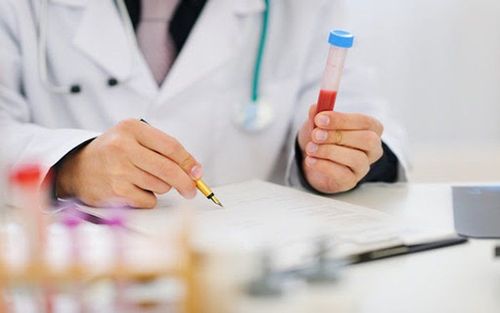This is an automatically translated article.
The article was professionally consulted by Doctor Tran Quoc Tuan - Head of the ICU - ICU - Emergency Resuscitation Department - Vinmec Phu Quoc International General HospitalCertain infections and certain disorders can be identified by antigen and antibody testing. So what are antigens and antibodies?
I. Antigen
1. Antigen definition
Antigens are substances that, when entering the human body, are recognized by the immune system and produce corresponding antibodies. This may be a humoral or cellular antibody that specifically binds or stimulates an immune response to that antigen.This response can be positive or negative. A positive response means that the body produces anti-immune globulin, the antigen that has stimulated the body to produce that antibody. A negative response is a state when the body is exposed to an antigen, the body tolerates that antigen, meaning that the immune cells have not responded to make antibodies. This state is very important in whether the body accepts or rejects antigens after entering the body.
2. Antigen classification
2.1 According to genetic similarity
Other antigens (xanoantigen): Antigens of different species; Alloantigen but different genes: Due to genetic diversity, different individuals in a species have different genes; Autoantigens: Normally, the body does not produce antibodies against its own tissues. In some cases (due to external or internal factors) to change the structure of some self-antigens, turning them into self-antigens, the immune system produces antibodies against the self-antigens, causing autoimmune disease.2.2 According to the chemical nature
Glucid: Polyosides are macromolecules with strong antibody production; Lipids: Lipids alone are not antigenic. When lipids attach to proteins or to glucid, it can stimulate the body to produce antibodies; Protein: Is the most common antigen in nature and has the best antigenic properties.2.3 According to the mechanism of causing immunity
Thymus-dependent antigens; Antigens are not thymus dependent.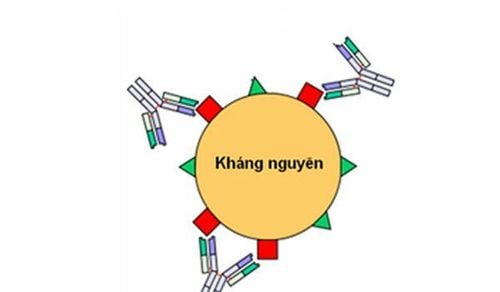
Kháng nguyên (antigen)
2.4 According to antigenic decision
Monovalent antigen: Antigen per molecule contains only one type of antigenic determinant; Polyvalent antigen: The antigen on the molecule contains many types of antigenic determinants; Cross antigens: Different types of antigens but contain one or more of the same antigenic determinants. Cross antigens are common between bacteria such as E. coli with Shigella or with pneumococci; Antigen Price (antigen valence): The maximum number of antigenic determinants capable of conjugating at once with the corresponding antibody.2.5. According to the immunological properties of the antigen
Complete antigens are antigens that have the ability to stimulate an immune response (immunogenesis) and specifically combine with antibodies. This antigen is usually a polypeptide or a protein complex; Semi-antigens (hapten) are antigens that are not able to stimulate antibody production but when they encounter antibodies, they combine specifically. The nature of these antigens is usually nucleic acids, lipids or polysaccharides.II. Antibody
1. Definition of antibodies
Antibodies are substances produced when the human body recognizes the invasion of foreign organisms. Antibodies will help destroy harmful bacteria and protect the body. The stronger the body's ability to form antibodies, the higher the immunity against bacterial infections.2. Antibody classification
Currently, through research, scientists recognize and classify some types of antibodies as follows:IgG: Is the most common antibody in blood, colostrum and tissue fluids. IgG crosses the placenta, protecting the baby in the first weeks after birth, when the baby's immune system is not yet developed; IgA: Make up about 15-20% in blood, colostrum, tears and saliva. Where IgA is secreted, it fights pathogens there; IgM: The first layer of immunity synthesized in the newborn. Combined with multidimensional antigens such as viruses and red blood cells, helping to destroy bad antigens, protecting the body; IgE: accounts for quite a large proportion and plays a role in acute hypersensitivity reactions as well as in the immune mechanism against parasites; IgD: Occurs at least 1% on the cell membrane, catabolizes quickly and is easily hydrolysed by plasmin enzyme during blood coagulation, so IgD is the antibody with the least function in the activation process. antigen.
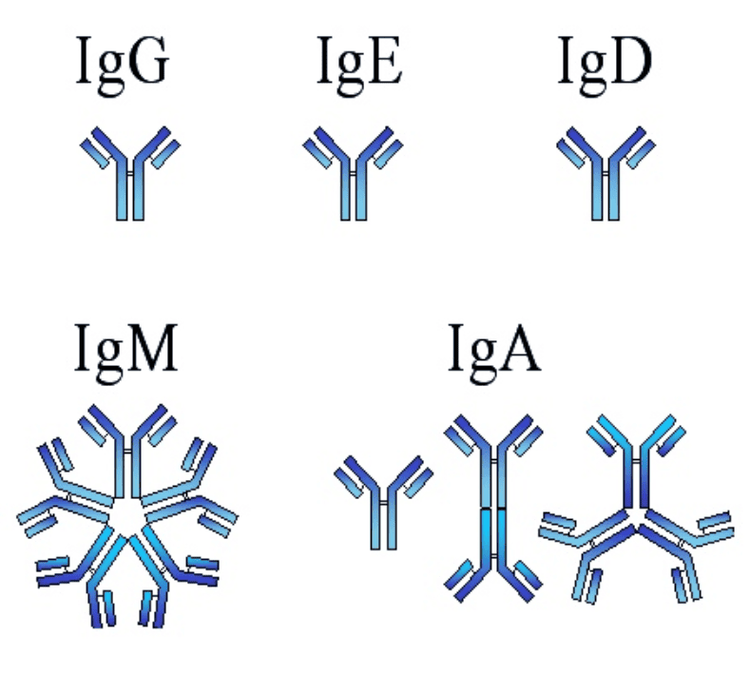
5 loại kháng thể hiện nay
III. What is the difference between antigens and antibodies?
Following are some differences between antigen and antibody:| Kháng nguyên | Kháng thể |
|---|---|
| Là bất kỳ chất nào kích thích hệ thống miễn dịch tạo ra kháng thể. Các kháng nguyên có thể là vi khuẩn, virus hoặc nấm gây nhiễm trùng và bệnh tật. | Được gọi là Globulin miễn dịch, có dạng các phân tử hình chữ Y, là các protein được sản xuất bởi cơ thể giúp chống lại các vật thể lạ xâm nhập vào cơ thể. |
| Protein nói chung, có thể là chất béo, carbohydrate hoặc axit nucleic. | Các kháng thể là các protein. |
| Kích hoạt sự hình thành các kháng thể. | Các trang biến có lãnh thổ kháng nguyên. |
| Có ba loại kháng nguyên cơ bản (xanoantigen, alloantigen, antoantigen). | Có năm loại kháng thể cơ bản (Immunoglobulin M, G, E, D và A). |
| Vùng của kháng nguyên tương tác với các kháng thể được gọi là Epitope. | Vùng biến đổi của kháng thể đặc biệt liên kết với một Epitope được gọi là Paratope. |
| Là nguyên nhân tạo ra các phản ứng khi có dị ứng hoặc bệnh tật. | Bảo vệ cơ thể bằng cách cố định hoặc phân tán vật liệu kháng nguyên. |
Please dial HOTLINE for more information or register for an appointment HERE. Download MyVinmec app to make appointments faster and to manage your bookings easily.




